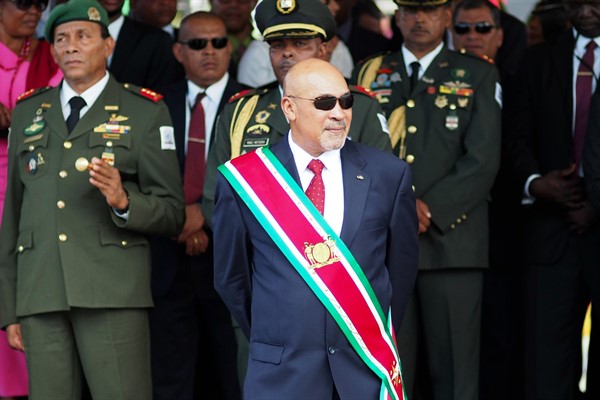Any doubt that the coronavirus pandemic can transform political realities was erased Monday when one of the world’s most entrenched strongmen was formally swept out of power in the tiny South American nation of Suriname. The National Assembly, Suriname’s legislature, officially named Chan Santokhi, a former police chief who prevailed in elections in May, to replace longtime President Desi Bouterse. Grounds for removing Bouterse, who was convicted of murder last year, have never been in short supply. But it took the pandemic and Bouterse’s spectacular mismanagement to bring an end to his rule.
Until the coronavirus arrived, Bouterse withstood challenge after challenge to his power over the decades—staging two military coups early on in his rule, and later reinventing himself as a populist president. But when voters went to the polls in May, with the economy in ruins, they handed victory to the opposition. A painstaking, three-week vote-counting process confirmed the results, with the opposition Progressive Reform Party winning a majority in the National Assembly, which elects the president. Santokhi, the man who had investigated Bouterse’s crimes, will now take the reins of power and try to pull Suriname out of its disaster.
The election result was a shock not only because of Bouterse’s record of survival, but because he had leveraged the pandemic to strengthen his grip. Before the vote, the National Assembly, dominated by Bouterse’s National Democratic Party, granted the president unlimited, indefinite emergency powers, couching the move as a part of the effort to battle the coronavirus. Still, Bouterse fell.

